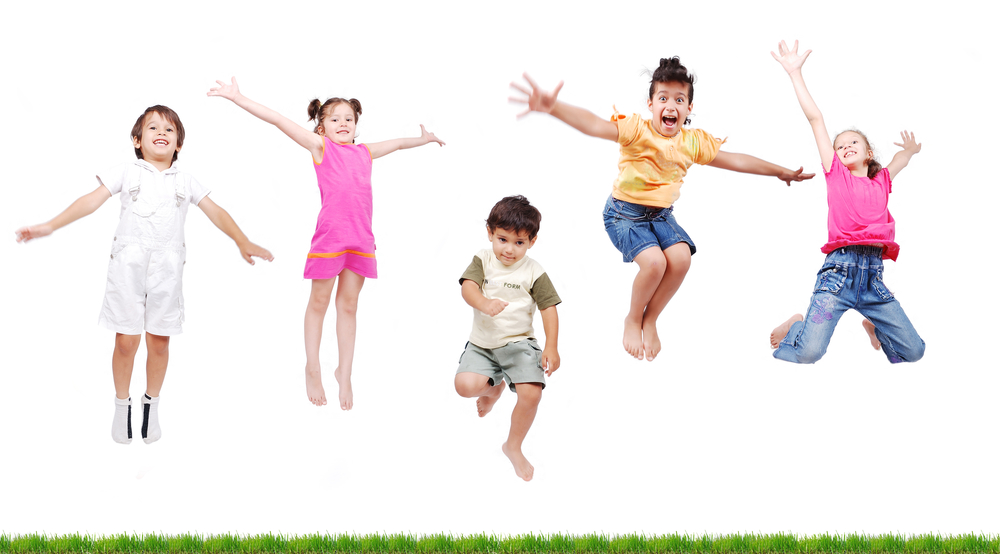Who would’ve thought that exercise improves physical and mental health? Some studies have observed how exactly the brains of children respond during and after physical activity and how these changes might affect their work and behaviors during the school day. The studies have shown results of brains that work better, longer periods of focus during class, and improved test performance.
Why Is Exercise Good for the Brain?
Participating in frequent exercise can help improve memory. Exercise has many other health benefits, including reduced insulin resistance and inflammation. It also plays a role in encouraging a higher release of growth factors, which are chemicals located within the brain that can influence various brain cells’ health and promote the production of new blood vessels within the brain. Being physically active can also lead to overall better moods and sleep, along with decreasing the amount of stress or anxiety one experiences. Bad moods, low amounts of sleep, and high anxiety and stress can potentially cause impaired brain function.

Are Children Getting Enough Physical Activity?
The COVID-19 pandemic did not help in the scenario of children receiving enough physical activity daily. Numerous studies found a 20% decrease (equaling 17 minutes each day) in children’s participation in moderate-to-vigorous exercise from before the pandemic to during the height of it. The areas of exercise most highly impacted were those considered higher intensity. Due to these results, public health experts are recommending campaigns focused on children to promote different styles and intensities of workouts to encourage them and family members to get active and promote a healthier community overall.
How Does Physical Activity Affect a Child's Intellectual Development?
Regular participation in cardio exercises like running, jumping, or dancing immediately boosts oxygenated blood flow to the brain, enhancing its function. Even a brief twenty-minute walk can lead to noticeable improvements in brain activity, motivating children to perform better in class and on tests.
Physical activity focusing on motor skills can also improve brain health. Motor skills involve working on balance, coordination, and reaction time. Activities that work on motor skills include bouncing a basketball and balancing on an unstable surface. Working on motor skills can lead to better concentration, easier attention to tasks, and improved memory capabilities.
Does Physical Activity Improve Mental Health in Children?
Physical activity has an overall positive effect on both physical and mental well-being in children. Even children who are currently experiencing behavioral or mental health issues can show improvements. Behavioral and mental health benefits can include:
- A better mood.
- Improved attention and concentration.
- Less frequent periods of anxiety and depression.
- A better self-image.
- More confidence in themselves.
- There is less risk of becoming depressed as they get older.
Children find physical activity more fun and engaging if friends or family participate in it with them.
What Are the Consequences of Physical Inactivity in Children?
While physical inactivity is not as serious for children as it is for adults, health complications can still occur. Cellular growth occurs much faster in children as they are still developing. However, if a child is not as active as they should be, it can impact how well they grow and develop over the years, both their bodies and their brains.
However, the negative impact of physical inactivity is not a foregone conclusion. By recognizing the signs and taking early action, we can prevent or mitigate these risks. As children age, symptoms may begin to appear, but with our proactive intervention, we can positively influence their health. Our health as children sets an essential foundation for how our health might be in the future.

Choosing a healthy plant-based and vegan diet is most beneficial when it comes to:
-
Higher levels of energy;
-
Improved sleep;
-
Aids in energy and overall happiness;
-
Provides a sense of comfort and relief;
-
Could prevent major diseases such as obesity and diabetes;
-
Accomplish weight loss and management; and
-
Improves mental and cognitive functioning.
Resources
Byington, T. & Lindsay, A.R. (2020). Physical activity improves brain and cognitive functions. University of Nevada, Reno.
Godman, H. (2014, April 9). Regular exercise changes the brain to improve memory, thinking skills. Harvard Health Publishing.
Massachusetts General Hospital. (2020, December 7). Physical activity and mental health: What is the connection? Mass General Brigham.
Pittalwala, I. (2022, July 25). Children and adolescents were 20% less physically active during COVID-19 pandemic. UC Riverside.
Raine, L.B., Logan, N.E., Watrous, J.H., Hillman, C.H., & Kramer, A.F. (2023, August 25). Exercise keeps the brain healthy! Frontiers.
Tumbles. (2021, August 11). The risks of physical inactivity for children: How does a lack of physical activity impact our children's development? Tumbles.
















